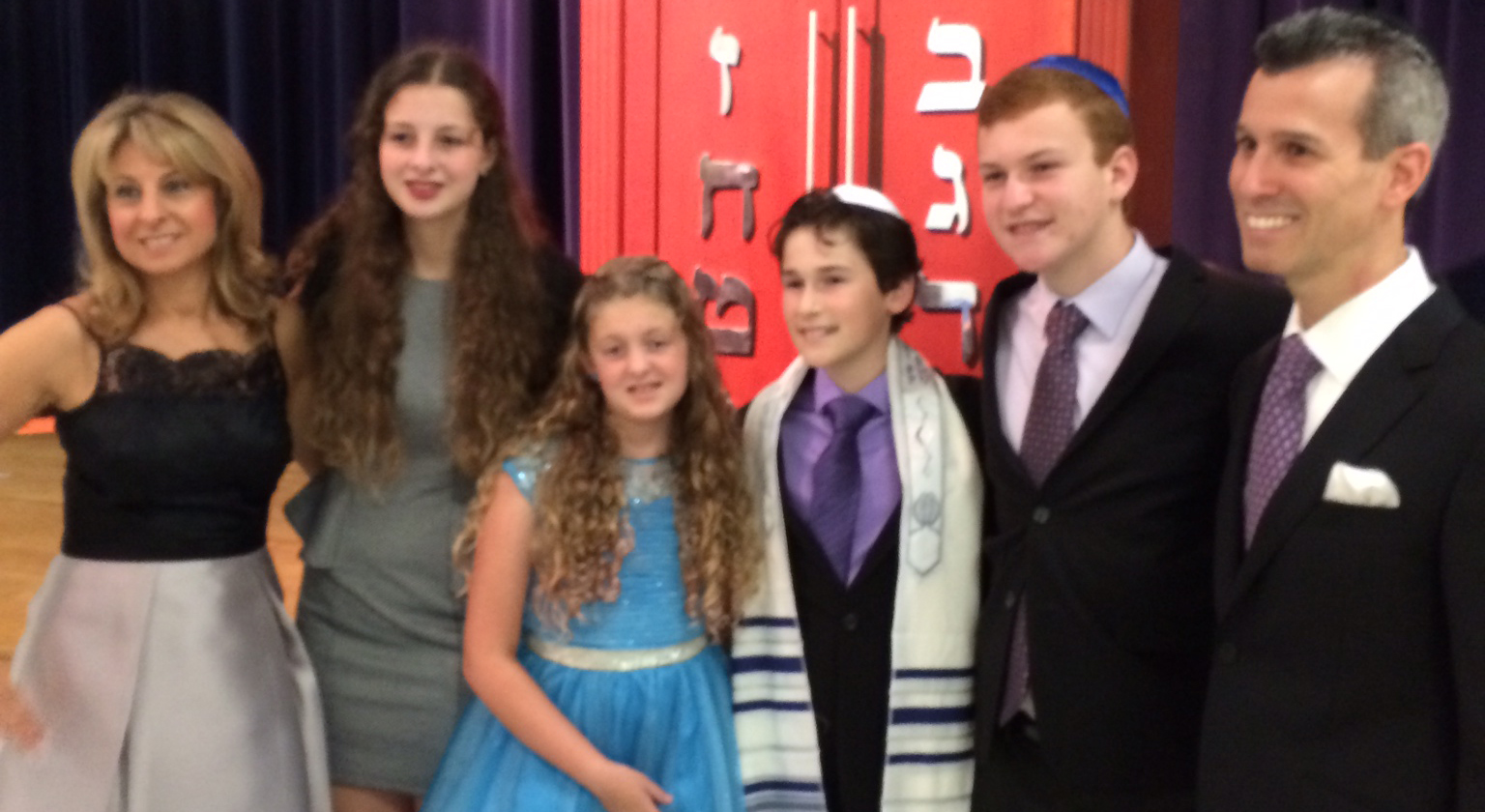By Alex Putterman

Teams representing Beth El Temple and a combination of B’nai Tikva Sholom/Temple Sinai – known in the League as the “Red Sox/Yankees of temple softball,” play a game at the Hall High baseball field in West Hartford.
WEST HARTFORD — By all accounts, the Greater Hartford Synagogue Softball League has hardly changed in 20 years.
Of course, most of the original players have moved on, and there have been rule tweaks and location changes over the years, but after all this time the essence of the league remains preserved.
Despite ups and downs in the number of teams participating, as well as those moments when it seemed a season might not be scrapped for one reason or another, the league still hums along, much as it has for two decades.
This year is no exception. The League features six teams; some represent single synagogues and others a coalition of congregations — mostly from West Hartford but one notably from Manchester — with rosters of various sizes. The squads play a 10-game regular season schedule over as many weeks, followed by a playoff tournament culminating in a championship game scheduled for Aug. 18.
The league’s endurance hasn’t come easy.
“It’s been very hard to keep this thing alive,” Alan Cetel, who is League commissioner and captain of the Beth El Temple team, told the Ledger. “Getting people out to do anything athletic is tough… Every once in a while teams that have roster troubles just drop out of the league and we have to scramble to find other teams.”
But among those who do participate every year, Cetel says, loyalty and enthusiasm never relents.
Stan Sokolow would know. The Beth El member was around for when the League was launched back in 1994, and has been around ever since.
Sokolow, 80, considers himself the Cal Ripken of synagogue softball. Despite being the League’s oldest player by more than a decade, he almost never misses a game and for 19 seasons rode his bike to the field every week, even during the years when the league played at Elizabeth Park, several miles from his house.
Only now, as he enters his ninth decade, has Sokolow decided to tone down his routine: He reluctantly drives to games and has relinquished his longtime spot at first base, relocating first to home base where he served as catcher, and now to the position of designated hitter. The scouting report on Sokolow’s batting from a somewhat-awed opposing player: he always makes contact.
Though Sokolow, who says he’ll continue playing as long as he can, might be the League’s most dedicated participant, he is not without rivals.
In the League’s inaugural season, Madeline White, then a member of Congregation Beth Israel in West Hartford, was asked to join her synagogue’s team. White loved being around baseball, but because of a bad back was unable to play. Instead, she volunteered her 16-year old son Nathan as a player and offered her own services as scorekeeper. Years later, when her family switched affiliations to B’nai Tikvoh-Sholom, mother and son jointly enlisted to represent their new congregation, he as a player and she as trusty scorekeeper.
Now 65, White and her son remain Sunday morning fixtures. It’s a welcome opportunity for mother-son bonding and, of course, participating in a sport they enjoy.
“I love to be out in the sun, I love watching baseball, I love being with my son, and I love being part of the team,” White said.
Family bonding is a recurring theme throughout the League. Many teams feature a web of familial relations, including Beth El’s husband-wife pitcher-catcher battery of Jake and Shari Kovel.
Ben Adler plays for a team made up of members of several Orthodox synagogues and brings his college-age daughters to games when they’re home, helping fulfill the league’s requirement that two women be on the field at all times. His daughters dutifully step up when called upon, enjoying what 19-year-old Arielle Adler playfully calls “old man softball.”
Sometimes “old man” softball can be tough for the old men. Sokolow remembers a time when Manchester’s Beth Sholom would struggle on the field as the players’ young children looked on. Now, those children are all grown up, continuing the family tradition — and have won the last two League championships.
Those who don’t enter the league with actual family members often leave it with a team-full of symbolic ones. Annette Gavens, nicknamed “Yogi” by teammates, was Beth El’s catcher for more than 15 years and organized an annual year-end Oneg Shabbat for the team, which players traditionally would attend wearing baseball gloves and their softball hats. (The rabbi, she says, would speak at the events and reliably repeat his pun on the Torah’s opening line, “In the big inning.”) There, off the field, Gavens felt the familial bond the strongest.
Gavens, who still attends games from time to time, would know better than anyone how the league is — or isn’t — different from how it was 20 years ago. It’s telling, therefore, that she can’t produce an example of substantial contrast. Most important, she says, is what has endured.
“The spirit of it and the camaraderie that’s developed,” she says. “That hasn’t changed one bit.”
Comments? email alexp@jewishledger.com.








 Southern New England Jewish Ledger
Southern New England Jewish Ledger














